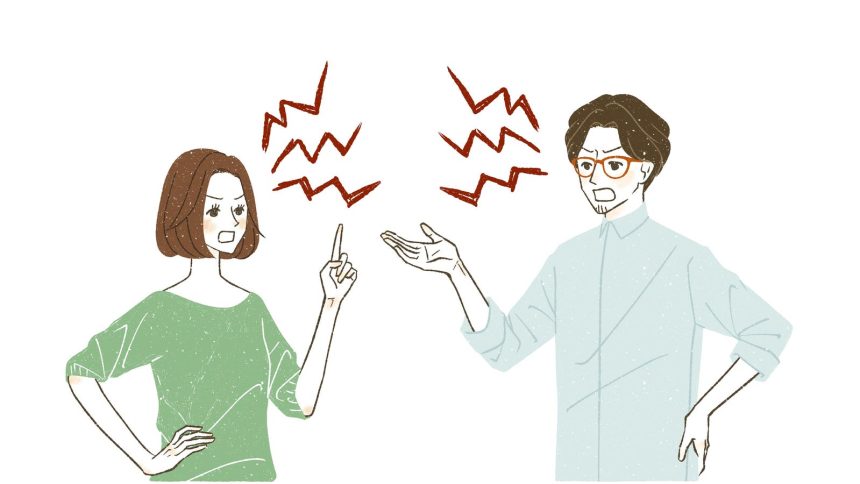Paragraph 1: Reframing Conflict as Opportunity
The conventional view of marital conflict paints it as a destructive force, a problem to be solved or avoided entirely. Many couples believe a "healthy" relationship is characterized by the absence of arguments, or their swift and painless resolution. This perspective, however, fundamentally misunderstands the potential of conflict. Rather than a sign of relational dysfunction, conflict presents an invaluable opportunity for growth, understanding, and deeper connection. Arguments are not landmines to be tiptoed around, but rather rich veins of information about ourselves, our partners, and the dynamics that shape our interactions. Embracing conflict, not suppressing it, is the key to unlocking a more fulfilling and resilient partnership.
Paragraph 2: Conflict as a Mirror to the Self
Often, the intensity of our reactions during conflict reveals more about our own internal landscape than about the issue at hand. Arguments act as mirrors, reflecting back unresolved wounds, unmet needs, and insecurities carried from past experiences. A partner’s desire for alone time might trigger deep-seated fears of abandonment, while a forgotten anniversary could reawaken feelings of unworthiness. These reactions are not merely about the present disagreement; they are echoes of past hurts that resurface in moments of vulnerability. Recognizing the root of these emotional responses is crucial. By practicing mindfulness, we can observe our reactions without judgment, understand their origins, and respond with greater compassion, both towards ourselves and our partners. Mindfulness promotes constructive problem-solving, fostering connection and preventing unresolved issues from festering. Self-awareness, cultivated through mindful reflection during conflict, lays the groundwork for a healthier relationship with oneself and one’s partner.
Paragraph 3: The Pursuit of Understanding, Not Resolution
The common misconception that every conflict must end in a resolution often hinders true connection. While finding solutions is important, fixating solely on resolving differences can be counterproductive, particularly when dealing with deeply ingrained values or personality traits. Not every disagreement has a neat and tidy solution, and forcing one can lead to frustration and resentment. Instead, the primary goal of conflict should be mutual understanding. A 2016 study demonstrated the power of perceived understanding in mitigating the negative impact of conflict. Feeling understood by one’s partner, even in the absence of a resolution, fosters a sense of validation and strengthens the relational bond. This sense of being seen and heard is often more valuable than reaching a compromise. Shifting the focus from finding a solution to understanding each other’s perspectives allows for deeper intimacy and strengthens the foundation of the relationship.
Paragraph 4: Cultivating Understanding through Active Listening
Transitioning from a resolution-focused approach to one that prioritizes understanding requires a conscious shift in communication style. Expressing the desire to understand your partner’s perspective, even if you don’t agree, creates a safe space for open dialogue. Asking open-ended questions, such as "What does this mean to you?" or "How does this make you feel?", encourages your partner to articulate their thoughts and emotions without feeling judged or pressured to conform to your viewpoint. Validating their experience, even if you don’t share it, reinforces their importance and strengthens the connection between you. Statements like, “I can see why this matters to you,” demonstrate empathy and build trust, even amidst disagreement. This active listening approach not only deepens understanding but also fosters emotional intimacy, a crucial component of a resilient and fulfilling relationship.
Paragraph 5: Conflict as a Crucible for Emotional Resilience
Conflict, when approached constructively, becomes a training ground for emotional resilience, both individually and within the relationship. John Gottman’s research highlights the importance of "repair attempts" during conflict – small gestures of humor, affection, empathy, and understanding that mitigate negativity and maintain connection. These repair attempts require emotional resilience: the ability to regulate one’s own reactions, remain grounded amidst emotional turbulence, and prioritize the long-term health of the relationship over winning a single argument. Practicing emotional resilience during conflict involves pausing before reacting, acknowledging both your own feelings and your partner’s perspective, and remembering that the relationship is bigger than any single disagreement. These skills, honed through navigating conflict, translate into greater individual emotional well-being and a stronger, more resilient partnership.
Paragraph 6: Embracing the Transformative Power of Conflict
Instead of viewing conflict as a destructive force, couples should embrace it as a catalyst for growth and deeper connection. Every argument presents an opportunity for self-discovery, understanding, and strengthening emotional resilience. By shifting the focus from resolution to understanding, and by consciously practicing mindful communication and emotional regulation, couples can transform conflict from a source of pain into a powerful tool for building a stronger, more fulfilling, and resilient relationship. The question to ask during an argument is not "How do we fix this?", but rather "What is this moment trying to teach us?". The answers, discovered through open communication and self-reflection, can not only save a marriage but also enrich the lives of both partners.



